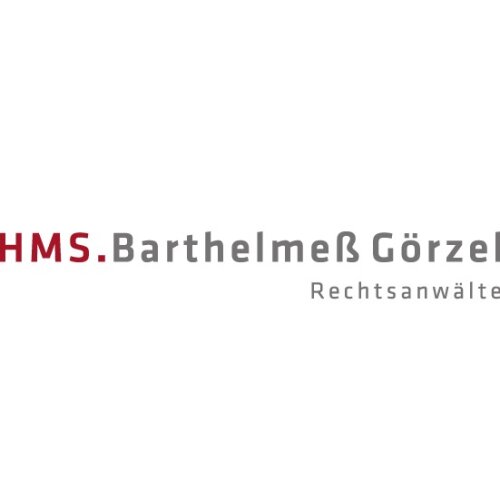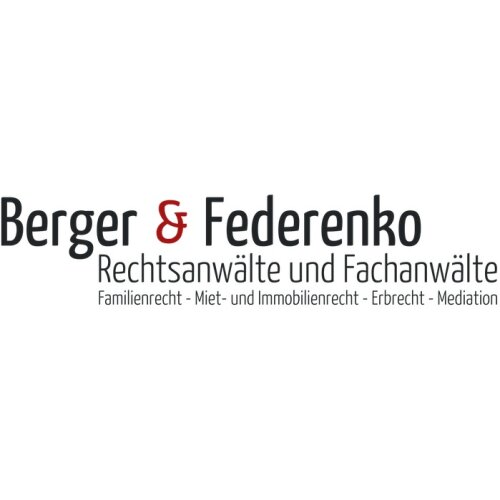Best Conveyancing Lawyers in Cologne
Share your needs with us, get contacted by law firms.
Free. Takes 2 min.
Free Guide to Hiring a Real Estate Lawyer
List of the best lawyers in Cologne, Germany
About Conveyancing Law in Cologne, Germany
Conveyancing refers to the legal process by which ownership of real estate property is transferred from one party to another. In Cologne, as in the rest of Germany, the process is highly regulated to ensure transparency and to protect all parties involved. The legal steps are codified and typically involve the drafting of a purchase contract, legal review and verification, notarization, and registration in the land register. Unlike some other countries, the involvement of a notary is mandatory in Germany, and the process is designed to minimize the risk of fraud and contractual issues.
Why You May Need a Lawyer
Engaging in property transactions involves significant financial investments and legal requirements. Here are some common situations in which people in Cologne seek conveyancing legal services:
- Buying or selling residential or commercial property
- Transferring property ownership due to inheritance, divorce, or gifts
- Addressing disputes or ambiguities in property boundaries or land use
- Reviewing contracts to ensure clarity and compliance with local laws
- Navigating issues related to mortgages, liens, or existing encumbrances on the property
- Addressing problems or delays with land registry registration
- Providing advice for foreign buyers or sellers unfamiliar with German property law
Local Laws Overview
Conveyancing in Cologne is governed by both national German law and local regulations specific to North Rhine-Westphalia. Here are some key aspects:
- Notarial Certification: Every property transaction must be notarized by a qualified notary. The notary drafts, reads aloud, and explains the contract, ensuring all parties understand their rights and obligations.
- Contract of Sale: The sales contract needs to be precise and contain detailed information about the property, parties, financial terms, and any rights or encumbrances.
- Land Register: Ownership is officially transferred only when the new owner's name is entered into the land register held by the local court (Grundbuchamt).
- Due Diligence: The process includes a thorough check on land register entries, mortgage status, easements, and whether the property is free from defects or claims.
- Taxes and Fees: Purchasers are generally responsible for paying the real estate transfer tax (Grunderwerbsteuer), notary fees, and land registry fees.
- Right of First Refusal: In certain cases, especially for properties owned by the municipality, the city of Cologne may have the right of first refusal (Vorkaufsrecht).
- Financing: If the purchase is financed via a bank, the mortgage must also be registered in the land register, and the bank may need to approve contract terms.
Frequently Asked Questions
What is the role of a notary in property transactions in Cologne?
In Germany, a notary is legally required to oversee the transfer of real estate. The notary drafts and authenticates the sales contract, explains the legal effects, and handles registration with the land register.
Can I buy or sell property in Cologne without a lawyer?
While it is legal to proceed without a lawyer, it is strongly recommended to seek legal advice, especially if you do not speak German fluently or are not familiar with local laws. The notary is neutral and does not represent either party's interests.
How long does the conveyancing process usually take?
The process typically takes between 4 and 12 weeks from contract signing to registration in the land register. Delays can occur if mortgage registrations, municipal approvals, or other legal checks are required.
Do foreign buyers face any restrictions when purchasing property in Cologne?
There are no general restrictions on foreigners owning property in Germany. However, foreign buyers may encounter additional administrative steps, especially relating to financing and identification.
What is the real estate transfer tax rate in Cologne?
In North Rhine-Westphalia, where Cologne is located, the real estate transfer tax rate is currently 6.5 percent of the purchase price.
How are disputes or defects with property handled?
German law requires sellers to disclose known defects. If defects are discovered after purchase that were not disclosed, buyers may have legal recourse for cancellation or compensation, depending on the contract terms.
What documents are needed for buying or selling property?
You will typically need identification, proof of ownership, recent land register extracts, property plans, and, in the case of financing, confirmation from your lender.
Who pays the notary and land register fees?
The buyer usually pays both the notary and land register fees, although parties can agree otherwise in the contract.
Is an agent (Makler) necessary for property transactions?
Using a real estate agent is optional. Agents may assist in finding properties and negotiating deals but always clarify their fees and responsibilities in advance.
Can property be gifted or inherited in Cologne, and do these require conveyancing steps?
Yes, property can be transferred by gift or inheritance. The process still requires notarization and registration, plus certain tax implications may apply.
Additional Resources
For more information or assistance, consider reaching out to the following resources:
- City of Cologne Real Estate Office - provides information on municipal land and right of first refusal
- German Federal Chamber of Notaries (Bundesnotarkammer) - directory of certified notaries
- Cologne Regional Court (Landgericht Köln) - handles land register and property disputes
- North Rhine-Westphalia Ministry of Justice - offers guidance on state regulations affecting conveyancing
- Local bar associations (Rechtsanwaltskammer Köln) - for finding qualified property lawyers
Next Steps
If you require legal advice or assistance with conveyancing in Cologne, it is smart to start by gathering all relevant documents related to the property. Next, consider scheduling a consultation with a lawyer who specializes in property and real estate law or contact a certified notary. Be sure to clarify their fees, communication process, and what services are included. If language is a barrier, request support from professionals with experience in international transactions. Acting promptly and seeking qualified legal help can ensure a smooth and secure property transfer process in Cologne.
Lawzana helps you find the best lawyers and law firms in Cologne through a curated and pre-screened list of qualified legal professionals. Our platform offers rankings and detailed profiles of attorneys and law firms, allowing you to compare based on practice areas, including Conveyancing, experience, and client feedback.
Each profile includes a description of the firm's areas of practice, client reviews, team members and partners, year of establishment, spoken languages, office locations, contact information, social media presence, and any published articles or resources. Most firms on our platform speak English and are experienced in both local and international legal matters.
Get a quote from top-rated law firms in Cologne, Germany — quickly, securely, and without unnecessary hassle.
Disclaimer:
The information provided on this page is for general informational purposes only and does not constitute legal advice. While we strive to ensure the accuracy and relevance of the content, legal information may change over time, and interpretations of the law can vary. You should always consult with a qualified legal professional for advice specific to your situation.
We disclaim all liability for actions taken or not taken based on the content of this page. If you believe any information is incorrect or outdated, please contact us, and we will review and update it where appropriate.









